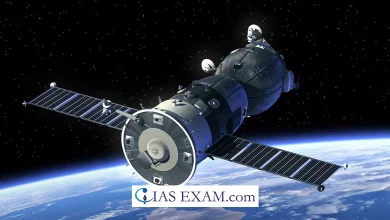Daily Current Affairs for UPSC
Chief Election Commissioner

Topic- Polity and Governance [GS Paper-2]
Context- Recently the Supreme Court calls out the Centre over short tenures of Chief Election Commissioners.
Key Highlights
- The Supreme Court stated that the government pays mere “lip-service” to the independence of the Election Commissioners
- This is evident from the way the tenures of Chief Election Commissioners (CECs) have “slid” down from over eight years in the 1950s to just about a few hundred days after 2004.
- The previous UPA government had six CECs in just eight years whereas during the present NDA government, from 2015 to 2022, for seven years, there are eight CECs.
- Section 4 of the 1991 Act says the term of a CEC and Election Commissioners is six years or till the age of 65 years, whichever is earlier.
- Protections under Article 324, like removal through impeachment, available under the Constitution to the CECs would only be of any use if he or she had a full term.
- The Supreme Court is hearing a series of petitions seeking functional independence for Election Commissioners.
- And the court is specifically examining the question of setting up an “independent, neutral mechanism”, outside the control of the government, for the appointment of Election Commissioners.
- In the last hearing, the Supreme court had orally remarked that a person appointed Election Commissioner could be completely honest, but may end up displaying a definite political leaning while in office.
Election Commission of India
- The Election Commission of India (ECI) is an autonomous constitutional body responsible for administering Union and State election processes in India.
- The commission was established in accordance with the Constitution on 25th January 1950 (celebrated as national voters’ day).
- The secretariat of the commission is situated in New Delhi.
- It administers elections to the Lok Sabha, Rajya Sabha, and State Legislative Assemblies in India, and the offices of the President and Vice President in the country.
- However it is not concerned with the elections to panchayats and municipalities in the states. For this purpose, the Constitution of India provides for a separate State Election Commission.
Constitutional Provisions
- Part XV (Article 324) of the Indian Constitution establishes a commission for matters related to elections in India.
- Article 324: It states that superintendence, direction and control of elections to be vested in an Election Commission.
Structure of ECI
- Originally the election commission had only one election commissioner but after the Election Commissioner Amendment Act 1989, it was made a multi-member body.
- The Election Commission consists of the Chief Election Commissioner (CEC) and other election commissioners, if any, as the President may from time-to-time fix.
- Presently, the commission consists of the CEC and two Election Commissioners.
- At the state level, the election commission is helped by an IAS rank Officer known as the Chief Electoral Officer.
Appointment & Tenure of Commissioners:
- The CEC and other Election Commissioners are appointed by the President of India.
- The commissioners have a fixed tenure of six years, or up to the age of 65 years, whichever is earlier.
- They enjoy the same status and receive salary and perks as available to the Judges of the Supreme Court (SC) of India.
Impeachment
- They can resign anytime or can also be removed before the expiration of their term.
- The Chief Election Commissioner can be removed from office only through a process of removal similar to that of a SC judge by Parliament.
Limitations
- The Constitution has not mentioned the qualifications (legal, educational, administrative or judicial) of the members of the Election Commission.
- Also there is no specific term of the members of the Election Commission.
- The retiring election commissioners are not debarred from any further appointment by the government
Powers and Functions of ECI
Administrative Power
- It determines the territorial areas of the electoral constituencies throughout the country on the basis of the Delimitation Commission Act of Parliament.
- The commission prepares and periodically revises electoral rolls and to register all eligible voters.
- It grants recognition to political parties and allot election symbols to them.
- The Election Commission ensures a level playing field for the political parties in election fray, through strict observance by them of a Model Code of Conduct evolved with the consensus of political parties.
Advisory Jurisdiction & Quasi-Judicial Functions:
- Under the Constitution, the election Commission has advisory jurisdiction in the matter of post election disqualification of sitting members of Parliament and State Legislatures.
- The opinion of the Commission in all such matters is binding on the President or the Governor to whom such opinion is tendered.
- Also the cases of persons found guilty of corrupt practices at elections which come before the SC and High Courts are also referred to the Commission for its opinion on the question as to whether such person shall be disqualified and, if so, for what period.
- The Commission is vested with the power to disqualify a candidate who has failed to lodge an account of his election expenses within the time and in the manner prescribed by law.





.png)



